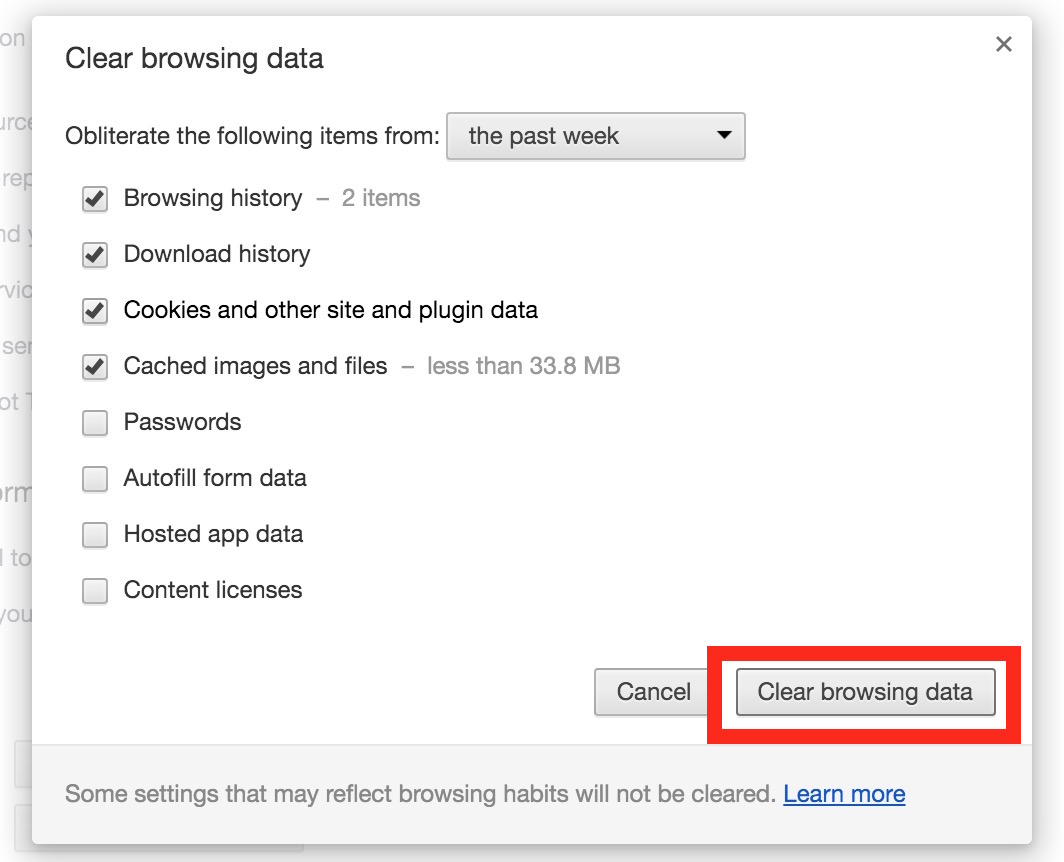Clean Up Tools For Chrome On Mac

Best Chrome Cleanup Tool for Windows, MAC & Android. By Prerna Bodhankar. So stop wondering how Chrome cleanup tools to clean your Mac and just go through the two best chrome cleanup tools for Mac. Now you can begin the Combo scan as the combo cleaner is ready to clean up the unwanted programs on your Mac. Hit the Start Combo Scan option.
If you're seeing some of these problems with Chrome, you might have unwanted software or malware installed on your computer: • Pop-up ads and new tabs that won't go away • Your Chrome homepage or search engine keeps changing without your permission • Unwanted Chrome extensions or toolbars keep coming back • Your browsing is hijacked, and redirects to unfamiliar pages or ads • Alerts about a virus or an infected device In the future, avoid unwanted software by only downloading files or visiting sites that you know are secure. Remove unwanted programs (Windows, Mac) Before you on a Windows or Mac, check your computer for unwanted programs. • Watch out for things that look too good to be true. Winning a contest or getting expensive copyrighted content for free is sometimes a trick to get you to download malware. • If you haven't recently run a virus scanner, be wary of warnings about viruses or infected devices. The site might be trying to scare you into downloading unwanted software. How to format a usb for windows 10 mac free.
• Only download files or visit sites that you know are secure. Learn more about. If a popup about updating or downloading a program looks suspicious, don't click on it. Instead, go to the program's official website to download it.
I want a tool that cleans up my bookmarks. I'll often bookmark a page to look at it later, but then never get back to it or forget I bookmarked it. After a few years of using Chrome, I've got a crapload of bookmark bloat. Here's what I'm looking for in such a tool (I might try to build this unless there's something out there already that does this): * Surface bookmarks I haven't visited in the past N days/months, give me the option to delete them * Identify groups of bookmarks that are similar (share most of the URL path or one page links to the other) or duplicates. * Suggest folders to place the bookmarks in based upon what Google knows about the websites (Sports-related, WebDev-related, etc), and/or time (I bookmarked five pages about similar topics on the same day, it's probably part of research I was doing for something) * Remove dead links or offer to convert them to the Google-cached version. Heh, when I read it, I took it to mean they are looking for malware exe's that are lodged on your system that affect Chrome. I guess you could go either way on it, but how is this different than just doing the 'Reset All Settings' function available in the Chrome settings?
Text: 'This application will scan and remove software that may cause problems with Chrome, such as crashes, unusual startup pages or toolbars, unexpected ads you can't get rid of, or otherwise changing your browsing experience.' > Fun fact, third party apps can't modify Chrome on Windows. AVG managed to. [1] > When a user installs AVG AntiVirus, a Chrome extension called 'AVG Web TuneUp' with extension id chfdnecihphmhljaaejmgoiahnihplgn is force-installed.
I can see from the webstore statistics it has nearly 9 million active Chrome users. > This extension adds numerous JavaScript API's to chrome, apparently so that they can hijack search settings and the new tab page. Free sex games for mac download. The installation process is quite complicated so that they can bypass the chrome malware checks, which specifically tries to stop abuse of the extension API. Chrome provides hooks to allow Windows to force extensions into it through Group Policy et al. Good for corporate IT, bad for protecting yourself against malware. The key insight is that Chrome itself is programmed to have quite-limited permissions—it not only heavily sandboxes itself, but it also does what it can to avoid requesting any powers from the OS that could be used to do damage in the first place, if one were to break out of the sandbox.

(This also has the side-benefit that Chrome doesn't need any of those 'scary' UAC elevation prompts during installation, which probably helps their funnel to an extent.) This means that Chrome actually doesn't have any of the permissions required to weed out the GPOs responsible for feeding it malware extensions. Even if the Chrome process wanted to reach out and blow them away, it couldn't. So they created this separate program, that does do 'scary' UAC-elevation things, to help out.